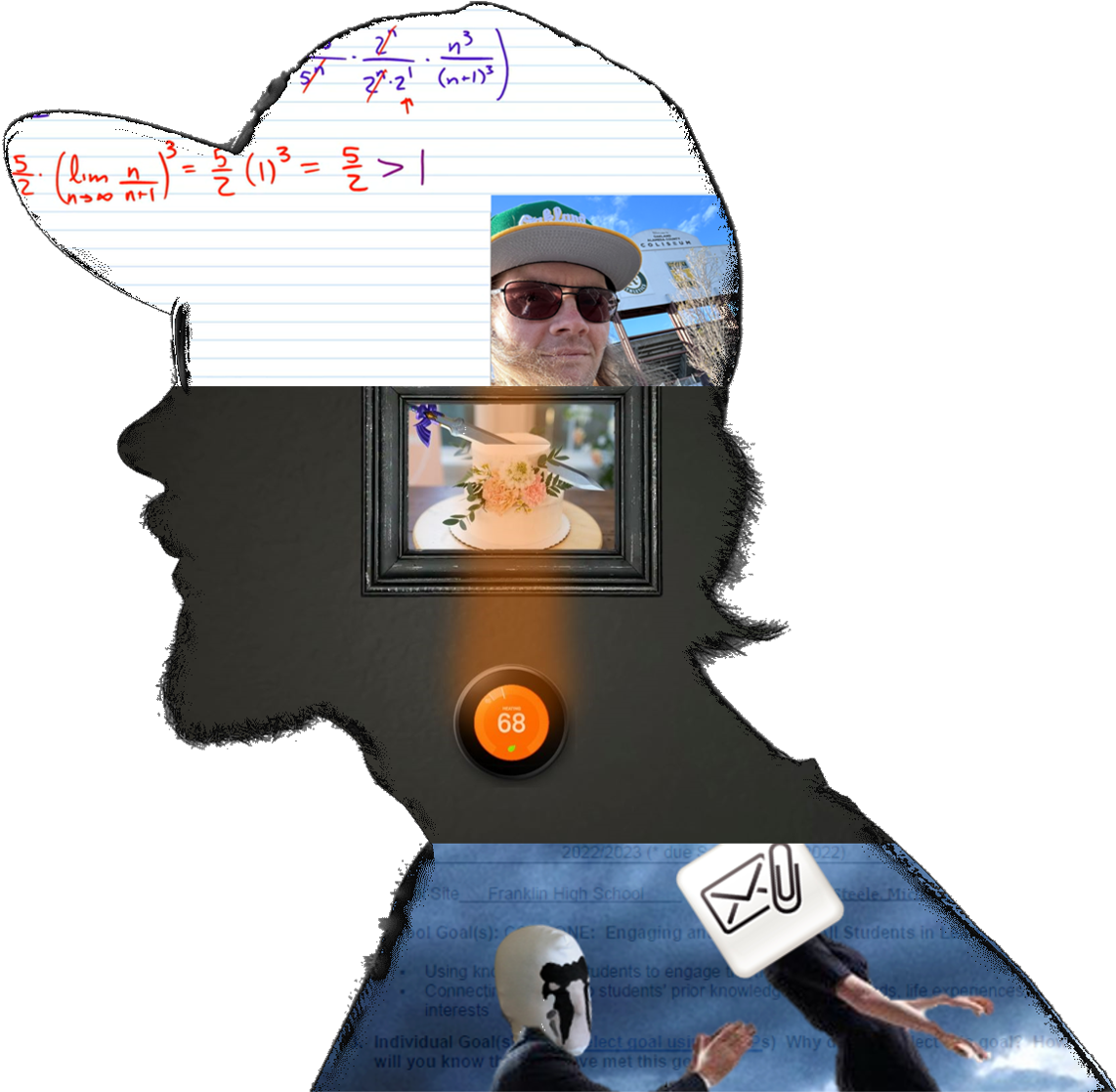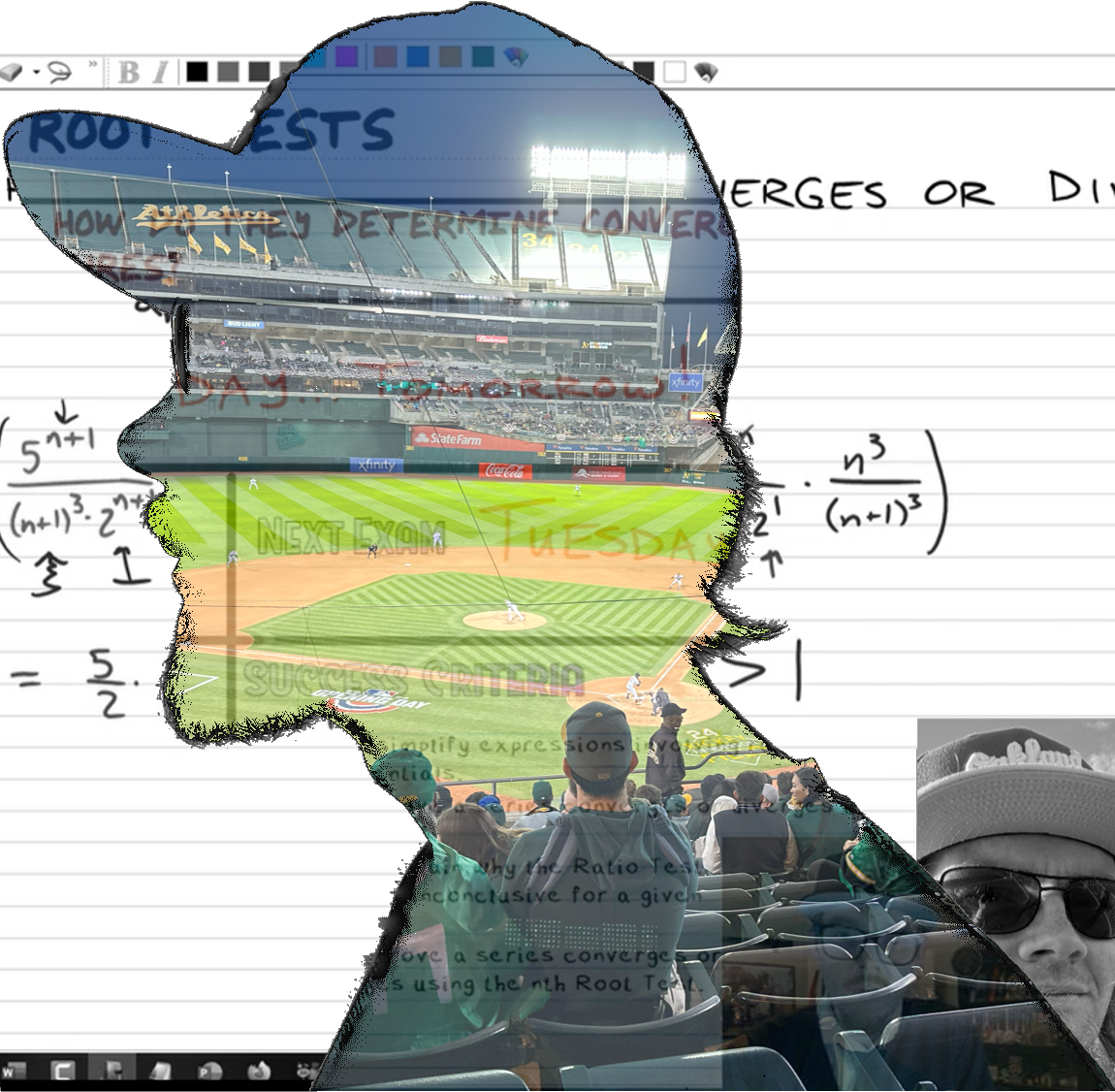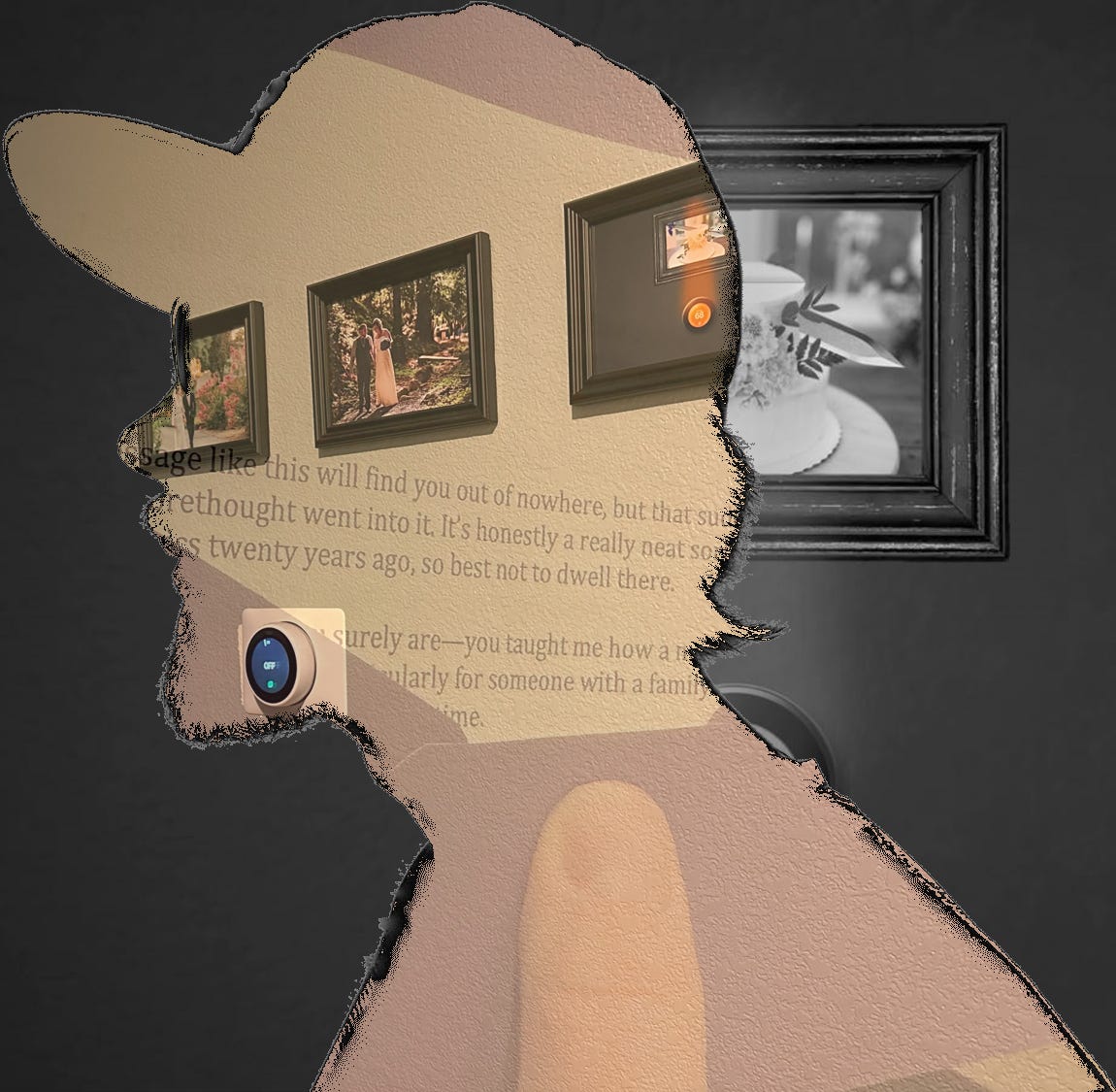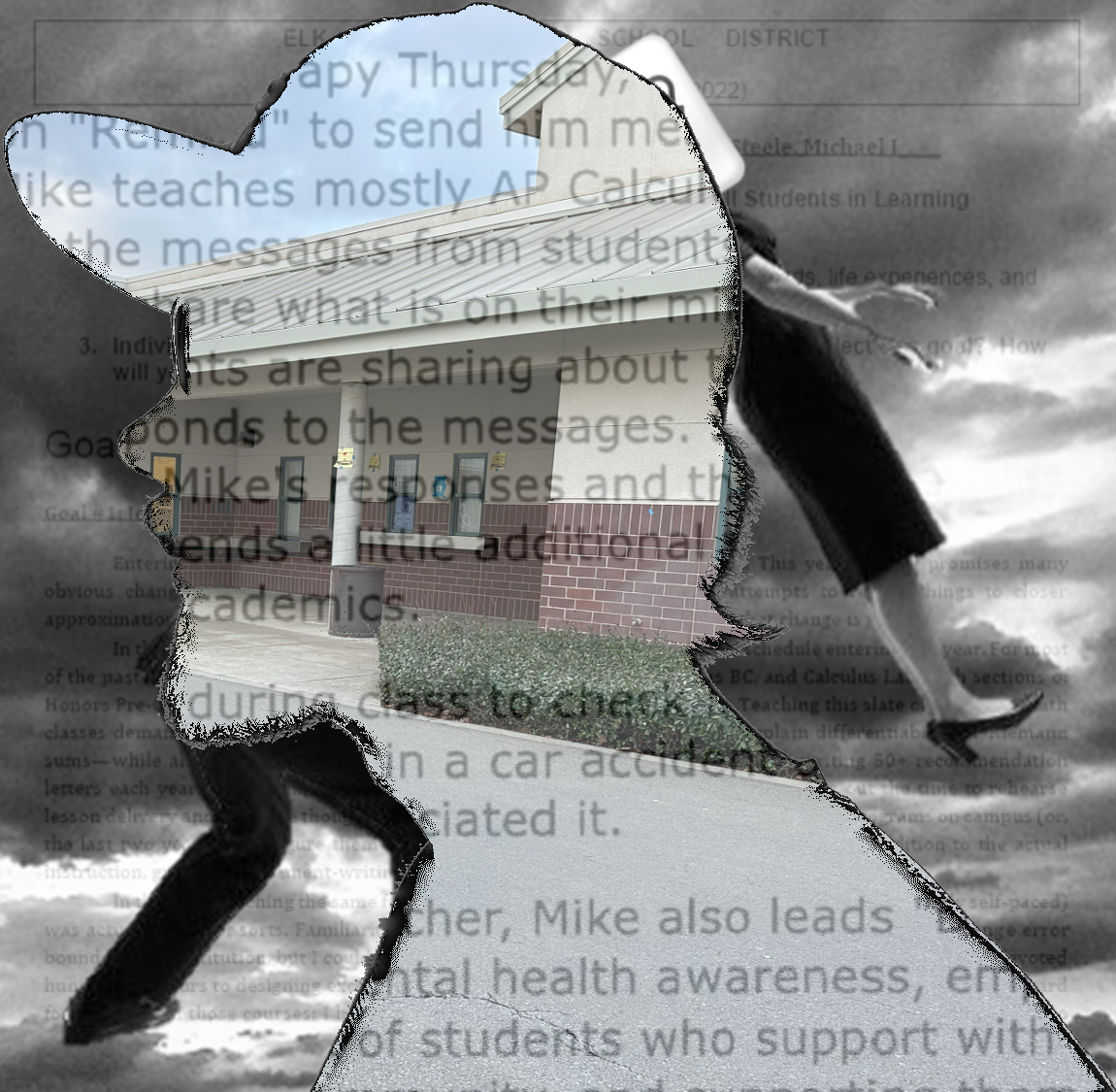I remarked in the post-script to “Power Ballad” a few weeks ago that I value how writing these pieces can be transformative. The best essays serve as personal therapy sessions dense with reflection and exploration. They re-frame situations and relationships from my life, helping me move forward with a fresh perspective on the issues that informed the original piece.
Rarely do I mark that forward movement, though—not on here, at least. Despite several essays that catalyzed lasting change in my life, I’ve only explicitly returned to one piece: “Quotation Marks”, an essay from 2020 in which I Internet-yelled at my favorite writer over a pair of punctuation marks.
Rereading that response now, I find an odd sense of pride. My revisitation centers on an apology but ends with a resolution not to write one. The piece ostensibly speaks to the original situation—someone I admire ripping the remote learning I was stressed over—but my return speaks to something greater. In it, I address the nature of sincere apologies and overlooking bad takes from good people, but I also discover a reservoir of conviction. Beyond my regret over rash words to a respected role model, I realize that I’d made the distance learning we disagreed over mean something. Total distance learning was one week old when I wrote the original; I couldn’t have known that would happen when I wrote the first piece. I needed to revisit the subject to celebrate what played out afterward.
This past week, three pieces I’ve published on Substack resurfaced. Each echoed a change in my mindset and circumstances. In lieu of writing my intended piece about AOL chat rooms, I want to revisit those three pieces and examine them from the future each foretold.
All three sections will begin with a link to the original essay, but I’ll include a sufficient synopsis to preclude any unnecessary clicks. I will then examine what has transpired since the original writing and the takeaways from each that reverberated last week.
A crucial part of looking back is moving forward; only a finer future justifies the crick in the neck gazing backward brings. I love exploring fresh ideas, but what good are their lessons if I never apply the learning?
This piece is about applying what I’ve learned. I hope you enjoy sharing this trio of journeys with me.
One. A Video Solution
Original Piece: Volume 4, Entry 13 (April 2, 2023)
Last March, I made my way to Alameda County for the Oakland A’s season opener. At that time, the move to Las Vegas remained only one option among many for the team, but concern lingered that the team’s match-up with Shohei Ohtani’s Angels might mark a final first day in the Bay for my favorite franchise.
I showed up hours early, well before Nate and Bria arrived from San Jose, which allowed me to wander around the Coliseum and soak in its atmosphere. Few words left my mouth for the first forty-five minutes: I stood in the shadow of a concrete behemoth, marveling at the green and gold-clad crowd’s guarded optimism.
My early appearance at 7000 S Coliseum Way was made possible by an even earlier escape from school. I taught my morning lessons as usual, leading a review day in Accelerated and instructing about the Ratio and Root Tests in second-period Calculus BC, but I left at lunch to line up transportation and a timely departure. The first pitch from southpaw Kyle Muller would be thrown at 7:07 pm, meaning I could have held out through sixth period—and that was my original plan. Leaving school to watch a baseball game with friends struck me as unprofessional, even though a proactive exit could clean up every messy thread.
When I mentioned this dilemma to a colleague, she advised me to go. Her unblinking urging convinced me to sacrifice sixth period to celebrate something I love: watching the Oakland Athletics with my friends. Thus, I recorded a video of myself teaching that Ratio Test lesson for my afternoon students to use in my absence. In that video, I acknowledged why I was out, devoting a minute or so to what felt like a more imperative lesson than the math: it’s okay to set aside work for events and people who matter. That I not only spoke to the true nature of my disappearance but even recorded myself doing that acknowledging lent my point power.
This year, the Oakland A’s opened the Major League season at home again, and as luck would have it, the date aligned once more with a day of instruction centered around the Ratio Test. Unlike in 2023, I did not hesitate to purchase tickets or miss school to attend. Final season or not, I never entertained missing 2024’s opening day.
Timing, though, would be different this spring. The entire drive would be with Nate and Bria, which excited me, but their recent ski trip pushed our departure slot back to 4:15. This was late enough that I could comfortably teach the entire day without delaying us. Barring a rogue GPS or turbulent traffic, we’d reach the Coliseum at the same time whether I or a digital relic taught the Root Test.
Rereading “A Video Solution” a few days prior, I recognized a surprising takeaway: although I cherished being present at the game and cheering on an unlikely A’s win, what gave the episode meaning was the message about leaving I’d recorded for my class. Full of driven students motivated to succeed, these individuals regularly trade pleasure for productivity. Like me for most of my life, they would pass on potentially special moments to grind out work. We—I and them—have been trained toward that. If any group would question leaving school to watch a game, it would be them.
I reasoned that they needed to hear that message the most…but showing up to school to share that sentiment would undercut its point. If I appeared on campus to talk about the power of absence, hypocrisy would snuff out the lesson before it could land.
So I stayed home—and not just for sixth period. I took a full sub day despite spending its duration one mile away at my house completing school work. “A Video Solution” inspired me to expand my stunt, stretching its potential benefit to a broader audience. Instead of 36 AP Calculus students hearing it, all 75 would be privy.
But I took things one step further. When I recorded my spiel about slipping away last year, I hadn’t written “A Video Solution” yet. My point came through, but my words lacked eloquence and conviction. The recording inspired the piece, not vice versa, meaning what I said to the audience I sought to inspire was less, well, inspired.
Things changed this year. Although a time crunch convinced me to reuse the instructional portion of 2023’s lesson, I recorded an entirely new introduction for the video. This time, I spoke freshly about my decision to leave, my insistence on its validity, and my purpose in specifically reiterating my point to them. What had been barely two minutes ballooned to nine, but I knew my one-take of filming and new words better suited the powerful lesson I sought to convey.
The point of that entire redundant recording, whether they realize it or not, will have been the short message from their teacher about going to the A’s game with his friends.
Devoting 20% of the lesson’s runtime to this extra-curricular element may have been too much, but I believed my former self. If my sole purpose in the classroom is mathematical, that was wrong, but as I wrote just a few weeks back, I don’t think that’s my sole purpose. There’s no better way to endorse an interrogation of priorities around work and school than executing that trade myself—twice.
I gave students outs to omit the opening, sharing a time stamp to skip my soapboxing. Judging by the unsolicited messages of gratitude and support from students throughout the school day, not to mention all the inquiries about the game on Friday, I feel confident that they listened and heard my plea.
The ball is in their hands now. I hope my message stays with them, planting a seed in their memories that flowers in the future, but that’s outside my control. What was, though, I acted on: I attended the game with my friends, and I used my tiny platform to encourage young, driven people to make similar decisions someday, too.
The A’s lost 8-0 this year. They played like utter shit in front of a sparse crowd, looking as hopeless and outclassed as they’ve been assembled to be.
I still had a great time. I also felt powerful, aware that I had turned questionable priorities from 2022 into a productive day off and a lasting lesson for people I care about.
Honestly, that means more to me than on-field success ever will.
Two. Heart(h)
Original Piece: Volume 4, Entry 14 (April 9, 2023)
My thermostat faltered one morning last April. I had been struggling to select a topic for the coming week’s newsletter, but my troublesome heater illuminated a tangential path into a topic that had been on my mind for months.
On the same platform that still houses my writing Finsta, I met and grew close to Zelda*, a classmate from 2003. Rare were the pieces either of us posted that the other didn’t comment upon; we leaped from not-even-acquaintances to enduring friends despite the bulk of our interactions being digital.
During college, Zelda ensured we regularly got together for coffee beyond exchanging typed words, and upon graduating and beginning our careers, we remained connected. She volunteered at my first Challenge Day; I attended her wedding.
The crux of the piece I wrote about Zelda, titled “Heart(h)”, revolves around photos from that wedding. I have a wall that was blank last April but where I intended to display wedding photos. I had arranged shots from Matt’s, Julia’s, and Alecsandra’s to hang up, but I realized that the display would be incomplete without representation from Zelda’s. However, Zelda forbade photography at her reception, wanting everyone to be fully present. The only way to acquire a photo of her wedding would be to ask her.
Except we hadn’t spoken since the mid-2010s. I stopped posting on our original platform for several years and then narrowed my audience to two people when I returned. When I deleted my Facebook account, I moved away from the flimsy fake threads of connection the platform fostered, but I forgot that Facebook was my one lingering link to Zelda.
At the end of the piece, I resolved to reach out to her. I had her phone number, but I used her address instead. I printed out “Heart(h)”, wrote a short letter reiterating its message, and then mailed it to her house. My hope: I would wake up one day to a text message, email, or even a new subscriber with a familiar handle, rebuilding a connection first forged in writing through it once again.
That I’m still using a pseudonym for her betrays what came from that outreach: nothing. I never heard back from Zelda. Although there are conspiracy theories I clung to at first—the heavy-with-paper envelope never arrived, tenants at a now rented out house discarded my correspondence, etc.—I accepted reality at the one-month mark: I would not be hearing from my old friend.
At first, I dismissed this passive rejection. How could it affect me? Zelda and I had been apart for years already; our lives couldn’t be more different, between her career with kids and marriage and my writing-while-alone-ness. However, during a sixth-period Therapy Thursday session, I discovered its impact when a male student expressed concern about losing his friend group after graduation.
These guys all sat in the back corner of my class, as most of them had the previous year. They were rambunctious and often cocky, guys that forced me to talk over them on many days, but they were good dudes. Their camaraderie was undeniable; they formed an organism unto itself.
Responding to the worrying one expressed, I moved through all my regular talking points, including magnets, and I intended to leave it there until a nagging sense of hollowness found me. While encouraging them to believe in their bonds, I remembered that I had lost Zelda, one of the only connections from high school that mattered to me. Without thinking, I related my story from “Heart(h)” out loud to my class but appended it with the outreach’s empty outcome.
I broke down. The words struggled to come out. The weight of that loss slammed me, but the guilt pinned me in place. “I caused it to end,” I told them through tears. “It was my fault for losing my friend.”
When I eventually finished my address and looked up, the guys in the back were in a massive group hug. Tears hadn’t been limited to my corner of the classroom. I left campus that day with a hole in my heart but also a surprising warmth: my story had affected them. Seeing their outpouring, I felt confident those guys would stay close and that some of the vacated connection between Zelda and me had resurrected in them. My sorrow would never lead to a rekindled relationship, but my love for Zelda could help spare others that fate, teaching young people to embrace their agency over the friendships that might otherwise decay.
A few weeks later, I hung up my wedding photos. Although I only had three, I hung four frames: my artwork from “Heart(h)” stands in for Zelda’s. When I walk past that wall, I see friends amidst moving moments of bliss, but I also see a warning: even the strongest friendships, like all relationships, require nurturing.
Passing by that image every day dozens of times means I think about Zelda a lot. There are days when I am tempted to reach out anew via Facebook reactivation, a text message, or a thinner letter with a safer chance of arriving, but I feel pretty confident that Zelda got my letter and just wasn’t moved by it. She is a nurse, so her work demands a lot physically and emotionally beyond what she can conserve for her family. A person like that doesn’t have time to gaze backward, especially not for some dude from high school. I suspect that the unacknowledged letter officially concluded what we had.
Still, Zelda is in my heart every day, and that love must go somewhere. When someone brings up the subject of maintaining friendship during one of the final Therapy Thursdays, I will siphon from it and invest what belongs to her toward them. My explicit goal will be to induce broad hugs and gushing texts with present besties that might otherwise disappear into the past, forging in emotion a promise that I failed to uphold. I’ll probably break down again—I’ve done so three times while writing this now—but that emotion will be persuasive reinforcement of the stakes.
But that’s the future. For now, I’ve already integrated the lessons from losing Zelda more directly. Last week, I realized it had been almost six weeks since getting together with a friend. We took several walks in January, but then life just got in the way. Soon, I was walking without thinking about extending an invitation. It had only been six weeks, but post-“Heart(h)”, that felt like too long. I sent her a message that included this line:
“I don’t want you to ever fade from my life.”
Since then, we’ve had two fantastic walks, one featuring a transcendently empowering conversation. Our friendship had gone nowhere, but I ensured it wouldn't by accepting responsibility and reaching out to her.
Although I think about Zelda daily, I didn’t connect this piece with that text message until Saturday morning. A harsh chill filled the house, so I turned on my thermostat. It had sat unused for several weeks, and I held my breath initially, unsure whether it would smoothly start or require a maintenance call.
The system kicked on, but I no longer take that for granted. HVAC systems, like enduring relationships, require maintenance.
Three. Goals and Objectives
Original Piece: Volume 3, Entry 37 (September 18, 2022)
Two years ago, my supervising Vice Principal, Carlos, earned a Principal job. I had grown to trust Carlos; the man came through every time a student emergency surfaced, and he took my concerns seriously, even when he couldn’t resolve them.
Thanks to this trust, I began completing my official Goals and Objectives document differently. I have always submitted extensive narratives when single sentences suffice, but my faith in Carlos led me to choose more authentic goals to put those narratives behind. That is to say, I wrote personal goals and objectives when they suited my mindset. When they didn’t, I wrote my narratives through a personal lens. Although I avoided profanity there, the documents came to read not unlike this newsletter.
As my 220+ posts on Substack prove, I cherish reflection. I’m constantly trying to understand myself, the past, the world, and how they all fit together. Porting those Pre-Conference logistics into a reflective activity suited me. Declaring, justifying, and contextualizing my guiding purposes for the school year marked something I looked forward to. Even when I resented the job, I still caught catharsis from grappling with its meaning.
But Carlos’ promotion threatened my process. For the first time in nearly a decade, I would have a new supervisor, and the woman assuming his office arrived with enthusiastic endorsements but remained a total stranger. I faced a crossroads: would I submit sterile, focused objectives or demonstrate trust by writing with the organic passion I always did for Carlos?
Ultimately, I landed on the latter: I sent in my massive PDF with thousands of words about my purposes for the year. When we met to discuss them not long afterward, I spoke honestly, admitting to my increasing dissatisfaction with the profession. As a people-pleaser, it had been anything but my intention to say anything of that sort, but I had already opened the floodgates with the document I submitted. I couldn’t avoid it.
In the time that has passed since then, I can safely say that she has validated my trust. Calling our department’s new supervising VP a breath of fresh air underscores her positive impact. She’s a patient problem-solver who isn’t afraid to take on big, amorphous challenges, and she’s optimistic and passionate without being cloying. She’s a perfect fit on our campus.
She also cares about kids in that way you can hear in her words but observe even more clearly in her actions. It was barely a month into her tenure when I ran into my first student emergency; she abandoned a webinar to hustle over and provide support. When no counselors could provide backup at a Saturday Diamond Day, she assumed their role before attending in full the next time. Just as Carlos once did, she also responded after 10:00 pm one night when a dire situation surfaced, helping arrange the vital action needed to ensure a student’s safety.
She did more than that: after helping arrange a response, she called me. Part of her motivation was to keep me updated on the details, but she mostly wanted to make sure I was okay. I didn’t realize until that night, when her calm words cut my careening heart rate in half, just how deep my trust had already become.
Last week, she and I met to close out the formal evaluation process, something I hadn’t gone through since before the pandemic. Working with Carlos had always made these evaluations a positive experience; our conversations were often philosophical and broader than any observed lessons. This year’s experience with my new supervisor had been pleasant as well, featuring an active Google Doc I could type context into following her classroom visits, but I hadn’t thought much about the evaluation itself until she scheduled its final component.
After I sat down in her office, she handed me a tall stack of papers. Each sheet featured dense, single-spaced explanations about how I do my job, so she offered to summarize the report while I perused its text.
My scores matched previous years’, so the actual evaluation part didn’t stick out. What blew my mind was how deeply she knew me—as an educator and person. Hers was a comprehensive profile of me, both inside the classroom and out, with a level of detail I could not have anticipated. Several items derived from our many conversations, but I had never spoken about others with her. She knew because she actually knows my work, but also, through it, me. Her ten typed pages show that I have grown as an educator and that my reflection and thoughtful intentions beyond the math curriculum amount to something meaningful. She made me feel seen in a professional way I could not previously fathom.
That made less of an impact than another fact: this was written by someone who gets me. Like so much of what she praises in that overview, her words were, I believe, intentional. Knowing how I’ve felt toward teaching and myself, she left no stone unturned during her evaluation process. The resulting document and conversation spoke to the value of what I do, which is the same thing as the value of my existing at all. Her comprehensiveness shocked my system.
Unlike the previous two pieces, I don’t think “Goals and Objectives” echoes throughout my actions this week. In a way, the conflict central to that piece strikes me as wholly contrived: I am as open a book as ever, both inside the classroom and out. No corner of my life is unexamined; my life sits here, publicly available for anyone who Googles my used-on-all-platforms username. I trust students when I share openly, dig out personal truths in front of strangers at Diamond Day, and express vulnerability automatically in nearly every relationship in my life. Trusting my new supervisor should have been par for the course.
And it was. I absolutely got choked up around the two-thirds mark of her verbal evaluation rundown. I didn’t feel self-conscious about it; I didn’t need to. I trusted her.
If there’s a lesson to take from all this, it’s the same one in the original piece: trust is a gift. Offering trust freely sometimes burns you, but there’s no better stage to set for a new relationship than trust.
I don’t know that my initial Goals and Objectives document facilitated this special moment. I suspect that my Vice Principal is just great at her job and fully invested in her work, which happens to involve knowing the people she supervises. But I think that my submission’s implicit message did resonate with her because of something she said at the end of our meeting. She had just expressed admiration for my prolific reflection when I shook my head in disbelief.
“Not everyone sees that,” I noted, my cheeks still damp. “Reflection is invisible.”
“Not yours,” she said. “It was clear from your Goals and Objectives.”
*****
I intended this to be a brief piece, but three short essays and an intro add up quickly. That’s especially true of essays like these that speak to subjects powerful enough to both write about and revisit: there’s too much to say to rush the reflection.
Although I continue to hesitate over its calendar, I’m leading a workshop about personal statements and the UC PIQs this summer. Practically speaking, my goal is to shrink seniors’ stress by proactively guiding them through their first and second admission essay drafts before homework and extracurriculars hijack their lives. The hours we work will be investments in their peace of mind.
Underneath that purpose lies a second one. Yes, I care about lessening the weight of application season—what is Sweet Appeal if not a tool for that exact purpose?—but I also believe in the actual writing. Loathe though I am to merely 350 words, I sincerely believe that people can benefit from reflecting that way. There’s no word limit on Substack, but it doesn’t escape me that creative non-fiction is precisely what I do and what colleges seek from their applicants. Getting in is their goal, but great value awaits those who master self-awareness and pound out prose that ponders the past.
I could tell the sixteen- and seventeen-year-olds in the workshop that reflective writing offers transformative potential, but I don’t think they’d believe me. It’s a long time before you can recognize the change it yields.
But I can. Every piece I publish here is an opportunity. Catharsis and discovery mark meaningful outcomes, but my best pieces portend growth. It’s impossible to know if an essay will become a catalyst while my thumb flies across the screen composing it, but looking back enables such a revelation.
Whatever your response to these essays, I see their impacts every day. Each one merited a second look.
Maybe even, someday, a third.
As a kid, I used to write in little physical diaries. Inevitably, a few weeks or pages into each one, I would tear out all I’d penned and shred the pages. Looking backward embarrassed me, and expunging the records of the person I was motivated me.
I’m happy to mark a change from that mindset here, too.
Thanks for reading.







Wow Michael! I read the last two essay summaries and have to say... The Heart (h) summary made me tear up. It reminded me of a friend who I parted ways with a long time ago over and sometimes wonder what would have happened if we had reconnected. Friendships do require maintenance which is easy to let fall by the wayside when life kicks in. I was reading a book by Lisa Nichols that talked about how most friendships are not actually life-long friendships. That shocked me. I thought all friendships were supposed to last. But she said that many many friendships are there for certain phases of life but not others. And that's ok. It gave me some peace and made me realise sometimes life/time/change will come in and sweep even the closest friends apart. And that's ok. You are not to blame. They are not to blame. It is all part of the human experience. Bonds will grow and fail with the seasons of life. And we're left with the memories. Sometimes that's bittersweet. But all in all, I feel you honouring your friendship with Zelda in that post. Which is a beautiful thing to do. I'm sure she remembers you fondly too. As I do my childhood friend.
I also think it's beautiful message to pass onto your students — that if they value a friendship, they have to make the active choice to keep investing in it. It's not something I think we've ever been told as adults. I'm not surprised there were many tears that day in the classroom! I could write more but this comment is already quite long. All the best Michael! Looking forward to reading and learning more from your experiences and reflections!